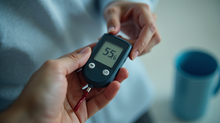What not to ask...the diabetic population speaks up!
- Maureen Sullivan RN, CEN, CDE
- Jul 9, 2015
- 3 min read

I was recently asked by a colleague "what not to ask a diabetic patient", meaning what questions were too invasive, too judgmental, too misinformed. Having taught many classes on diabetes self management education, it is amazing to hear the stories of what well meaning people asked persons with diabetes ( PWD)......in the interest of helping......that did just the opposite.
For example, rest assured that you do not need to ask a diabetic person, "are you sure you should be eating that"? Chances are pretty good they know what they should/should not eat. Most likely, they have received basic education on healthy food choices. Most likely, they also know the ( possible) good/bad/ugly effects of food choices. Your inquiry will come across accusatory , judgmental and police-like. Support the PWD; let them know you care, and then step back and allow them to make their informed food choices.
From the healthcare provider side of the story, the worst thing a provider can ask of a diabetic patient is "why"....as in "why cant you stick to your diet; lose the weight; remember to take your medications; keep your blood sugar logbook up to date..." etc etc etc. Diabetes is a chronic health condition. Medical compliance is dependant on a variety of circumstances. "Progress, not perfection" is truly the goal with diabetes. Despite all good intentions, there will be days that the glucose meter still reads too high, the diet slip up will occur, and the work day will not allow for a full work out session. Additional stressors can affect blood sugars as well, and are often issues that cannot be amended easily. For that reason, I would hope healthcare providers, my coworkers, aim for a team approach that is supportive, nurturing, and nonjudgmental. In doing so, everyone wins.
"You didnt cause it, but you are responsible for it". Truer words never spoken. The preceeding statement was told to a newly diagnosed patient by her healthcare provider. It is by far the most nonjudgmental statement regarding a health condition. It simply states you have this, and we are in this together. The patient was so thankful to hear the implied support that came with a new diagnosis. Under different circumstances, it would have emotionally crippled someone; for this person, she was immediately empowered. Yes, this person had risk factors ( very few of us do not have personal risk factors) but risk factors alone are not solely responsible for the emergence of a health condition. Empower a newly diangosed patient that you have a team working with and supporting you, and watch for the great outcomes that will occur!
Another version of this scenario is " you caused your diabetes", a statement often said to the newly diagnosed diabetic patient who happens to have modifiable risk factors ( obesity, hypertension, high cholesterol, smoker, low activity levels). It immediately builds up communication barriers, puts the patient on the defense , fosters poor ( future) communication, and adds a layer of guilt to an already tense situation. In my opinion, it is a crime to shame and guilt a newly diagnosed diabetic patient (usually a T2DM) as you would not do this to a T1DM, or any other newly diagnosed chronic disease. Again, building a trusting, nurturing environment is the only way to help a patient become a healthier version of himself.
#Diabetes, #Teamwork, #Empowerment-> Improved outcomes! Guarenteed! :)



































Comments